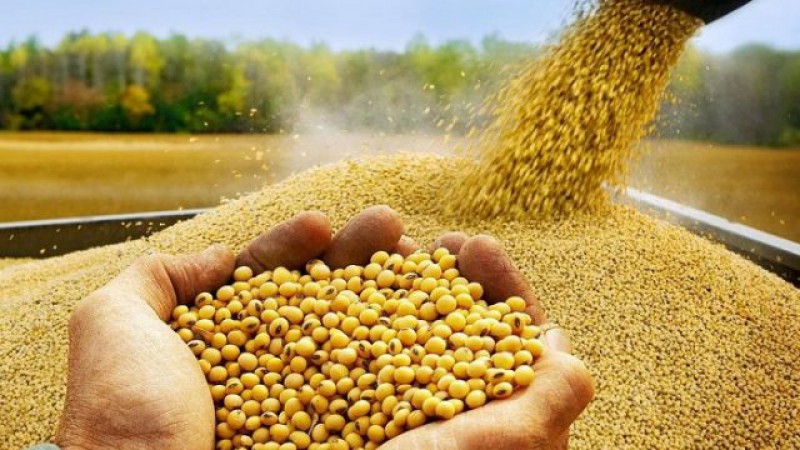
Leading experts and people’s deputies within the framework of Agri Invest Forum 2018 will discuss details about the problem of eliminating the export tax refund for oil.
Growth of soybean crops compared to last year's indicator does not indicate the absence of negative consequences from the adoption of "oil amendments", but is a consequence of the specifics of cultivating oilseeds.
Denis Sergienko, the head of “Lebed-Agro” and member of the Ukrainian Agricultural Council (UAC) LLC stated this on his Facebook page.
"Recently, the Acting Minister of Agrarian Policy and Food of Ukraine Maxim Martynyuk said that as of May 4, domestic agrarians sowed soybeans on an area of 661.9 thousand hectares. At the same date last year was sown 636 thousand hectares, which allegedly indicating the absence of negative consequences from the adoption of "oil amendments", which provide non refunds for VAT when exporting soybeans and rapeseed. I would like to share the optimism of Martynyuk, but some details of the specifics of growing soya and other crops prevent it from doing so, "- wrote the agrarian.
According to Sergienko, the fact is that farmers plan the structure of crops and crop rotation in advance, and do it is not accidental. In addition, in order to maintain profitability at an acceptable level, soya can not be replaced by any culture. For example, early crops in recent years did not allow the farmer to earn. Available alternatives are, for example, sunflower and corn. Here, in fact, there are problems.
The agrarian said that farmers are preparing corn and sunflower areas mostly from the fall, introducing mineral fertilizers for basic cultivation. At the same time soybeans are sown for a minimum or zero technology. “Soybean amendments” were adopted in December 2017, that is, when farmers could not physically prepare areas under barn crops and bring the necessary volumes of fertilizers to frozen ground.
In addition, Sergienko added that quality sowing material has also to be ordered and purchased in advance. Many farmers have done it in the fall of 2017. Accordingly, they only had one opportunity - to sow reserved and partially prepaid volumes of soybeans and to hope that the Verkhovna Rada will still be able to abolish the rules on non-reimbursement of VAT when exporting oilseeds.
According to Sergiyenko's forecasts, we expect the reduction of sown areas under soya in 2019, and not in 2018. But the reduction of gross crops by official statistics, we can expect already this year. The reason is that farmers do not have the incentive to sell assorted soy legally - in any case, the price does not include VAT refunds for exporters, respectively, the difference between the prices for conversion and for the "cache" will be reduced.
Note. At the end of last year, the Verkhovna Rada adopted amendments to the Tax Code abolishing VAT refunds for oil exports. These changes will reduce the purchasing prices for these crops within the state. As a result, processing enterprises owned by domestic oligarchs and large multinational corporations, will be in a win. At the same time, the losses of small and medium agrarians will reach about 8 billion USD. As a result, farmers will become unprofitable to grow soybeans.
To restore justice and abolish the notorious “oil amendments”, there was developed a draft law No. 7403-2. Fifteen regional councils, international institutions, a number of people’s deputies and all major associations supported this document.
However, the Verkhovna Rada is delaying its adoption. The bill has been introduced several times on the agenda of the parliament, but still has not been considered by deputies. In order to draw the attention of the people's constituents to the problem of the agrarian sector, agricultural producers with the support of the UAC closed the main highways of the country three times, arranged protest actions under the profile tax council of the Council and the Parliament's building.
If after the restoration of the Verkhovna Rada's work in mid-May the deputies will again ignore the demands of agricultural producers, guided by the interests of the oligarchs, and not of small and medium-sized businesses, farmers will be forced to continue the protest actions and make them more extensive.
Monday, 7 May 2018